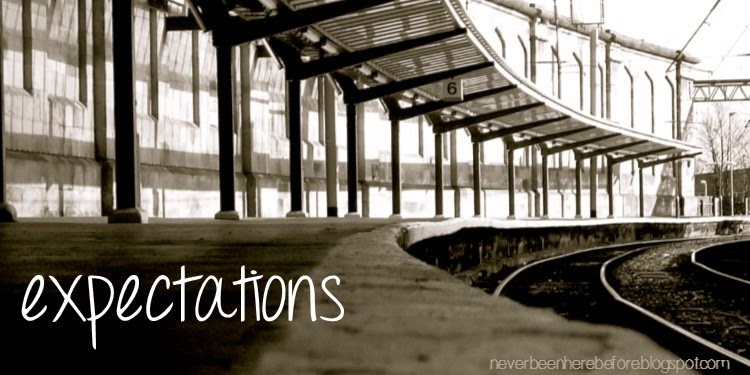unsafe people
I’ve been thinking a lot about safe people in the last several months, mainly because I’m in a situation where being able to have safe people is 100% needed for what I’m going through, and I need to able to identify those who are safe(who may already be in my life.)
There always seem to be people in our lives who are afraid
to have the more intimate and hard conversations with you, even when it doesn't involve your own
friendship/relationships, but maybe a difficult situation you are going through on your own.
friendship/relationships, but maybe a difficult situation you are going through on your own.
There is the friend who avoids and says things, “Well, let’s
try not to think about that.” Or the silent friend, who just doesn’t text back and after a
few days of silence you’ve forgotten you’ve even asked them or told them what you
were going through. (But you really didn’t, because you wouldn’t have asked
them if you didn’t really want their thoughts.) There is the friend who gives you terrible advice, the
friend that “can’t believe this is happening.” And the “get over it” friend.
This behavior is what many would consider sympathy and not
intimacy. Here is an ESSENTIAL video to watch for understanding this. http://goo.gl/PwxOJi
I’m not saying there is anything wrong with these friends…
you should cherish all those you have in your life, because I believe God has
put every person in your path for a reason. But I also know that these are what
Cloud and Townsend would likely label as “unsafe people”
Link to their book this here: http://www.amazon.com/Safe-People-Relationships-Avoid-Those/dp/0310210844.
Unsafe people aren’t always bad people – they just don’t have the ability to be intimate with others. That makes them unsafe, especially when you try to be intimate with them.
Link to their book this here: http://www.amazon.com/Safe-People-Relationships-Avoid-Those/dp/0310210844.
Unsafe people aren’t always bad people – they just don’t have the ability to be intimate with others. That makes them unsafe, especially when you try to be intimate with them.
Unsafe people act as if they have it all together instead of
admitting their weakness. And this can
manifest itself in one very interesting way: they may not *actually* admit they
are perfect, but they let you go on feeling as if you are the only one with
problems. For example, they might tell
you that you’ve blown something out of proportion or that your feelings are
invalid because “that’s not how they meant it.” Or they might say “You’re overreacting.” and tell you how you should be feeling. In this process, they make you feel like you are weak, because
they never admit weakness or struggles with you. All the weakness remains on your side.
The result is feeling disconnected from them, because
intimacy is born out of sharing weaknesses and friendship involves sharing
vulnerabilities.
Finding and having and keeping safe people in your life is really
hard. And sometimes people who don’t start out as safe end up 100% being so,
because God does a tremendous work in their lives and they finally understand
how to be an emotionally healthy person.
And sometimes the person you thought was safe ends up not
being so, and that is painful because betrayal is usually the emotion you end up feeling.
“The first time we get hurt by an unsafe person – or even a reasonably safe one – there is always a period of surprise as we begin the painful adjustment to the realities of unsafety.” (pg. 62)
“The first time we get hurt by an unsafe person – or even a reasonably safe one – there is always a period of surprise as we begin the painful adjustment to the realities of unsafety.” (pg. 62)
So much of this comes down to a core question, “Can I be
myself with them?”
Do I have to try too hard? Do I have to pretend?
Cloud and Townsend give some other characteristics of unsafe
people:
- They are self-righteous.
- They demand trust. And when their façade of perfection is stripped away they blow up or disappear.
- They abandon you or fight you when things get tough (especially in the context of your friendship/relationships).
- They make promises with which they don’t follow through.
- They bring out the worst in you.
These things don’t drive connection. They drive uncertainty,
mistrust, emotional detachment, and fear.
I still have most of the second half of the book to finish,
which talks about safe people, how to identify and how to be one. I’ll be
writing about this later.
When I think about all I’ve been through in the last year,
and the people who were safe and unsafe with me, I can’t help but wonder how
much is mine own fault and how much isn’t. And if it’s even worth assigning
blame, because at this point all I want to do is move on and get through this.
But I also know that getting through something involves the swampland of the soul… some shame and vulnerability… some self-examination and pain.
But I also know that getting through something involves the swampland of the soul… some shame and vulnerability… some self-examination and pain.
I don’t want the swampland of my soul to be unsafe for
anyone. Because I’ve felt it when someone’s has been unsafe for me and it hurts.
Just like I want and need to take a shotgun to my shame, I want to take all the
unsafe parts of me and blow them up, too.



Comments